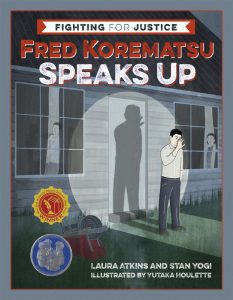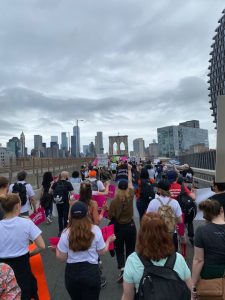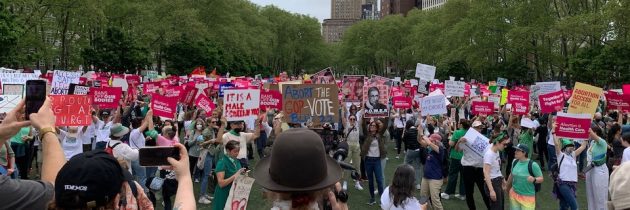Gambling With Freedom
I’ve known Tim Walz for almost 20 years, ever since he ran for Congress from Minnesota’s First District and my husband and I donated to his campaign. At fundraising events we talked about his years as a teacher and the human rights curriculum that he wrote for his high school students. I incorporated some of his ideas into my Educators’ Guide for Gringolandia.
So I was interested in seeing him in the vice presidential debate last night against J.D. Vance, whose Hillbilly Elegy I read when it first came out in 2016. I appreciated the writing and storytelling of Vance’s memoir, though I felt he discounted the role of luck in his success. most notably when he joined the Marines and was assigned to relatively safe duty as a base public relations specialist in Iraq. No career-ending injuries for him, as for so many others who returned with disabilities and traumatic brain injuries.
While I understood Walz’s efforts to create a civil debate — one that for the most part Vance reciprocated — there were a couple of moments that disturbed me. The first started with the demonization of “illegal” immigrants. Vance’s libel that legal Haitian immigrants in a small city in his state were eating pets resulted in a wave of threats and terror against all of the city’s residents. He dodged when Walz called him on the effects of his libel. Later, when discussing the crisis in affordable housing, both high home prices and high rents, he blamed “illegal immigration” for the crisis. Never mind that undocumented immigrants have a tenuous connection to housing affordability, as they generally live in crowded, dilapidated conditions. Never mind that some of the more affordable cities in the country, such as Houston and Minneapolis, are also home to many immigrants. He told the listeners that he and Trump would round up all the undocumented immigrants and seize their property, thus freeing up those homes for so-called “real Americans.”
But just as Vance has called legal Haitian immigrants “illegal”, he’s engaging in a bit of misdirection here. He’s luring his audience with the promise of taking away private property owned by those he considers undeserving and giving it to his supporters. Or making it available for supporters to buy or rent on the cheap. Has that ever even happened before in the United States? The answer is yes.

A nonfiction book about the Japanese American internment, the story about Fred Korematsu and his quest for justice.
In 1942, after Japan bombed Pearl Harbor and the United States joined the war, the federal government under Franklin D. Roosevelt deported 120,000 Japanese Americans to internment camps. The internees owned property, including homes and businesses. Before being taken away, many of them sold their property to non-Japanese neighbors at fire-sale prices. If not, it was considered abandoned and neighbors took it or the government seized it. Even before this shameful episode, many homes and businesses owned by Black Americans were destroyed and their owners driven out in the decades-long terror that ushered in Jim Crow.
This is the playbook — forced relocation by government troops, or attacks by irregular forces and mobs. Trump’s recent line, “one really violent day,” evokes the violence of Kristallnacht, November 9, 1938 in Germany and Austria, when antisemitic mobs ginned up by the government rampaged against Jewish business. Afterward, many Jews chose to flee and abandon their property to their hate-filled (or simply opportunistic) neighbors. Those who couldn’t leave ultimately perished in the Holocaust.
When people hear these kinds of threats — of violence, of seizures of property — they think it won’t happen to them. It’s those “other people” — those who came into the country without documents, those of a minority religion or brown skin. But leaders with no respect for the rule of law or human rights don’t stop at a single group. Who’s next? Maybe labor leaders. Maybe teachers and librarians. Maybe the gay couple living down the street, or the only Black family in a white suburb.
Then maybe someone down the street whose kids or pets make too much noise and disturb a government official. Or a business owner whose business is more successful than that of a well-connected competitor. Or a musician or writer who just can’t keep her mouth shut.
And that leads to the second disturbing moment in the debate, right at the end. The moderator asked Vance if he would have certified the election on January 6, 2021, as then-VP Mike Pence did. Walz said that Pence’s fulfillment of his vice-presidential duties according to the letter of the law is the reason Pence is no longer on the ballot and Vance is. He reminded the audience that the insurrectionists called for the hanging of Pence. Vance dodged the question, saying we have to “think about the future.” Walz responded, “That’s a damning non-answer.”

This march against the Supreme Court decision to overturn Roe v. Wade could be deemed illegal in a second Trump administration.
That future Vance and Trump want is, for us, a gamble with our freedom. They’ve offered some shiny things — new cheap houses, cheap gas, cheap groceries, no income taxes, high tariffs, a vague “better” health care plan, and getting rid of millions of people that many folks don’t want around. Some of these things are “concepts of a plan” to quote his boss, some are unworkable (high tariffs lead to runaway inflation and supply-chain disruptions, raising grocery and other prices; income tax cuts or elimination would balloon the deficit), some would require massive repression and violence to carry out. And then Vance said he would move, as vice president to overturn an election if the results weren’t to his, and his boss’s, liking. So what’s the point of having an election in the first place if you’re going to overturn it and stay in power? And if he doesn’t deliver the health care or houses that he’s promised, and people start to grumble, what can they do if there are no more free and fair elections? What can they do when the list of “enemies” goes beyond undocumented immigrants to legal ones, to citizens who are in some way different, to workers who want higher wages and better working conditions, to people who protest a Supreme Court that overturned reproductive choice and has signaled a desire to overturn a whole lot of other freedoms?
I’m not a gambler. And with the stakes so high, you shouldn’t be either.






